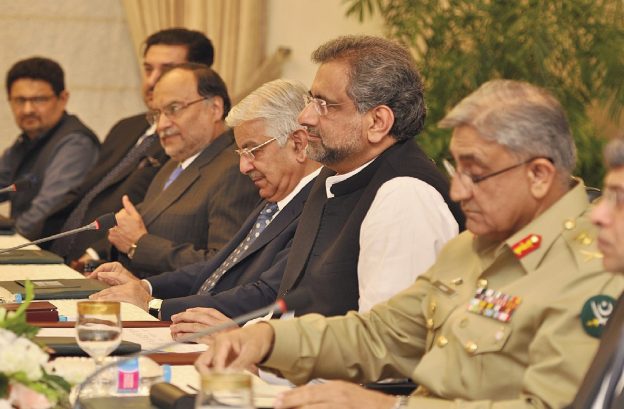Caretaker Finance Minister Dr. Shamshad Akhtar’s statement that the state of the country’s economic health is worse beyond her anticipation speaks volumes about the situation we are faced with.
Considered to be an eminent economic wizard, Dr. Akhtar’s account before a group of the country’s parliamentarians exposes the fault lines that we are set upon.
Also, interesting enough is the fact that she was telling such a frightening economic story to those {the members of the Senate} who until a few weeks were part and parcel of the agreement that as she believes has tied the hands of caretaker rulers their predecessors.
Not only Dr. Akhtar but also the recipients of her briefing knew what was coming in the next weeks and months after the agreement signed by the Shahbaz government with the International Monetary Institution (IMF).
The state of the economy for which independent economists had already claimed to have entered into the sphere of bankruptcy was no secret and the things had already slipped out of hands. Thus no traditional recipe can turn savior.
Given the backdrop, Pakistan’s Finance Minister Dr. Akhtar, in other words, just told them listen you already know we cannot do anything but to close our eyes. ‘After the agreement with the IMF, there is no fiscal space for giving subsidies for the power tariff to the people of Pakistan,’ she says.
Hike in oil prices and its subsequent impact on power tariff, agreements with Independent Power Projects (IPPS), deep corruption, theft, power losses, mismanagement, and the unwillingness of successive governments to introduce reforms joined hands to tighten the noose around the necks have created unprecedented reactions across Pakistan.
In response to the situation on the ground, caretakers have to do anything but throw unscrupulous offers such as breaking the bills into installments to the people that could not ease the burden at all.
Pakistan’s electricity situation though having a political angle is an engineering story too. Right from policy, planning, and execution, thousands of engineers are involved in this story.
Ironically, most of these engineers including those who were elevated to be part of the parliament and now will be sitting around the table as members of recently-formed engineers’ caucus did not appear to float any engineering solution to address the issues.
Very recently, one of the stalwart engineers who happened to be the prime minister of the country bitterly opposed the Separate Cadre Bill for engineers in Pakistan when it was moved to the lower house of the parliament. Thus, he sided with the bureaucracy and politicians who primarily ruined the economy of the country and brought the people on the roads.
Even now, the caretaker government finds no way but to approach the IMF to create space for subsidies, while the engineers are still busy advocating that their leaders will save the people when they assume power after winning the elections which they even do not know when the elections will really take place.
Have engineers really surrendered before power politics
on 24/10/2023








